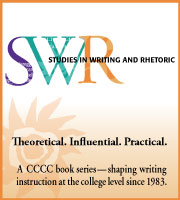Characterization of Institution
Research II University
Characterization of Department
Ph.D. granted in composition/rhetoric
M.S. granted in composition/rhetoric
B..S/B.A. Scientific and Technical Communication
B.A. English
How would Harrison Spenser’s case turn out in your department? At your university/college?
No one ever knows how anything will turn out here, as in most universities.
Had everyone done everything right here, the dean would have read the recommendations of the committee, would have considered that of the department head, would have seen the inconsistency, and would have both met with the head and also provided a written comment, thus by the end of the third year provoking a resolution and likely track either to tenure or to non-reappointment.
The dean should also have required, and the department head should have been accustomed to providing, either a concise statement of expectations in the initial letter of appointment or a concise job description, one or two sentences. For this appointment that statement should have included the words “scholarly publication appropriate to the area of graduate teaching” or the words “grant writing” or “funded research.” If any of these words or phrases had not been included, it should have been agreed by all parties that there was no expectation in that area. If not stated, then that work, if done, would be a bonus but not a requirement.
That is how it would be done here, if everyone got it right. Sometimes they do.
What are the Department Chair’s responsibilities toward Spencer? Which did he fulfill? Fail?
Serious problem here. In part the head led Spencer astray by not resolving the conflict, which seems to me to have been between head and committee. The head seems fine on foresight and weak on execution.
What are the Personnel Committee’s responsibilities toward Spencer? Which did they fulfill? Fail?
That chair needed to invite the head to a meeting of the committee. By the third year it should have been clear that Spencer was receiving conflicting directions and that a resolution needed to be reached between head and committee.
What are the responsibilities of the Dean? Which did she/he fulfill? Fail?
The dean should have asked for clarity in the initial appointment, should have seen the conflict between head and committee, should have recognized that the head was either leading in the right direction and could get there or that the leadership of the head was to a dead end. If dead end, the dean should have let the head know so that the head might direct the appointment back to traditional scholarship while thinking about other jobs. If the dean believed the head understood a vital direction of the future, then the dean need to find a way to support the head and get the head’s message to the committee.
What are Spenser’s responsibilities? Which did he fulfill? Fail?
Spencer needed to recognize that given conflicting directions, tenure was unlikely. The message was there.
What went wrong? What went right?
Most things went wrong. The head went one way, the committee another, and Spencer tried to ride with both. What went right was that there were reviews and there was communication and the differences might well have been recognized and resolved had they been faced up to.
Additional Comments
One further note. Conflicting advice is not unusual and untenured faculty need to be responsible to themselves, in part by thinking about the future of the area in which they work. I think the best piece about future directions in the profession is still one that was written by George Steiner in the 1960’s. It remains in print as the chapter “To Civilize Gentlemen” in his book Language and Silence, New Haven: Yale UP, 1998. It might have been a useful piece for Spencer (was that the name?) to have read.












